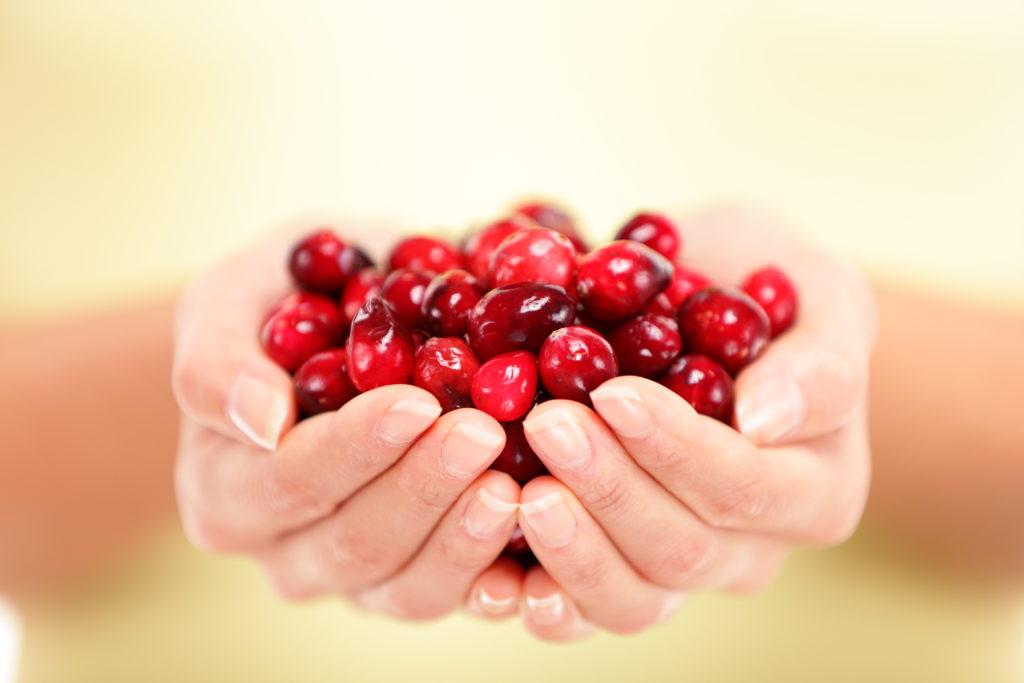
I tend to be hesitant to report on studies of single foods doing amazing things (because many do), but this piece of research still caught my eye.
So, what did this group of researchers from the University of East Anglia find?
Well, they wanted to study the effects of cranberries specifically because they are known to have plenty of flavonoids – healthy compounds which have been shown to have multiple positive effects. This was also studied in an older population of 50- to 80-year olds. Right up my street then. The goal was also to see if it could help with any effects of dementia which is becoming severe in many societies with ageing populations.
They therefore tracked 60 cognitively healthy participants over a 12-week period. Half of the participants consumed powdered cranberries equivalent to 100 grams of fresh cranberries (about a cupful) and the other half consumed a placebo.
What were the results?
Well, the results were pretty impressive. They showed that the cranberry group significantly improved memory function of everyday events (known as episodic memory) but also that the brain exhibited higher levels of oxygenation and enhanced neural functioning. On top of this the cranberry group also exhibited a significant circulating LDL (“bad” cholesterol) decrease.
So, all in that’s top news for cranberries. Whether that is just cranberries is open to interpretation – it is likely the combination of flavonoids that are found in cranberries – but cranberries are particularly rich in them and so it could do you a whole bunch of good. But do remember to keep a healthy diet in general because that will likely have the largest benefits. But if in doubt a cupful of cranberries will do no harm and likely do an awful lot of good!

Andy Habermacher
Andy is author of leading brains Review, Neuroleadership, and multiple other books. He has been intensively involved in writing and research into neuroleadership and is considered one of Europe’s leading experts. He is also a well-known public speaker speaking on the brain and human behaviour.
Andy is also a masters athlete (middle distance running) and competes regularly at international competitions (and holds a few national records in his age category).
Reference
Emma Flanagan, Donnie Cameron, Rashed Sobhan, Chloe Wong, Matthew G. Pontifex, Nicole Tosi, Pedro Mena, Daniele Del Rio, Saber Sami, Arjan Narbad, Michael Müller, Michael Hornberger, David Vauzour.
Chronic Consumption of Cranberries (Vaccinium macrocarpon) for 12 Weeks Improves Episodic Memory and Regional Brain Perfusion in Healthy Older Adults: A Randomised, Placebo-Controlled, Parallel-Groups Feasibility Study.
Frontiers in Nutrition, 2022; 9
DOI: 10.3389/fnut.2022.849902
More Quick Hits
Why We Share Posts on Social Media
Is it just pictures of cats that we share on social media? That is a cliché – most of social media does not have post of cats on them and all manner of things are shared.
What Makes Human Brains Different?
Those who have followed my writing and articles will know that this is a question that comes up regularly. Just what is different to human brain compared to other species?
Brain Centre For Altruism Identified
Various parts of the brain have been associated with social behaviour but this particularly interesting study looked at effortful decision-making to help others and identified a region that only activates to this.
Genes Or Exercise for Living Longer?
We all know that we should get our exercise. And we all know that this is associated with many positive health outcomes. This includes living longer.
Yay! “Inoculation” Against Misinformation Effective
Wouldn’t it be great in the current world if we could inoculate people against misinformation. Sigh! But that will never happen
Lack Of Sleep Makes Us Selfish
We humans are a social species, we do things in groups, gather in restaurants, bars, music venues, and public spaces together.






